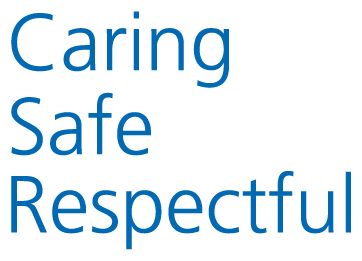Here you will find information and resources to support your postnatal care.
Post natal care is the support you receive in the days and weeks after giving birth. This helps you recover, adjust to life with your baby and feel confident in looking after your baby.
Your wellbeing matters too, and the postnatal team is here to support you.
After birth, midwives will:
- offer skin-to-skin contact, bonding and baby's first feed
- check you and baby are health and recovering well
- support you with feeding your baby
- complete newborn examination, screening tests and discuss safe sleeping
After you have been discharged home postnatal visits are carried out by community midiwves or maternity suport workers. These may be a mix of home visits and clinic appointments and are dependent on your individual need.
A midwife will visit you at home the day after you are discharged home from hospital. She will then arrange an appointment for day 5 for weighing the baby, the baby bloodspot test and to review mum.
Ongoing care will also be planned at this visit. Your midwife will handover care to the community health visitors approximately three to four weeks after you have had your baby. Ongoing care will also be planned at this visit. If you have need of a midwife, contact 01253 956820.
Our community midwife teams work 8.30am to 4.30pm:
| Location | Contact Details |
|---|---|
| Fylde team (Kirkham/St Annes) | 01253 957299 |
| Blackpool South team | 01253 957299 |
| Blackpool Central team | 01253 956517 |
| Fleetwood team | |
| Wyre team | 01253 951545 |
A thrombosis is a blood clot in a blood vessel (a vein or an artery). Venous thrombosis occurs in a vein. Veins are the blood vessels that take blood back to the heart and lungs whereas arteries take the blood away.
A deep vein thrombosis (DVT) is a blood clot that forms in a deep vein of the leg, calf or pelvis.
After the birth of your baby, if you:
- Have a very long labour (more than 24 hours) or have had a caesarean section, lose a lot of blood after you have had your baby or receive a blood transfusion
- If you were on heparin before the baby’s birth, you are likely to be advised to continue this for six weeks afterwards
It is important to be as mobile as possible after you have had your baby and to avoid becoming dehydrated.
Read about reducing the risk of venous thrombosis in pregnancy and after birth: Reducing the risk of venous thrombosis in pregnancy and after birth | RCOG.
Most women can leave hospital one or two days after having a caesarean section. While in hospital:
- You'll be given painkillers to reduce any discomfort
- You'll have regular close contact with your baby and can start breastfeeding
- You'll be encouraged to get out of bed and move around as soon as possible
- You can eat and drink as soon as you feel hungry or thirsty
- A thin, flexible tube called a catheter will remain in your bladder for at least 12 hours
- Your wound will be covered with a dressing for at least 24 hours
When you're well enough to go home, you'll need to arrange for someone to give you a lift as you will not be able to drive for a few weeks.
This is more information on how to care for your wound recovery after a caesarean section.
Postnatal care and pelvic floor exercises:
Contraception
Perineal hygiene and care



